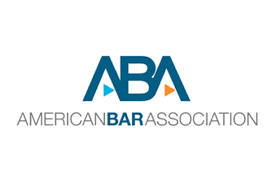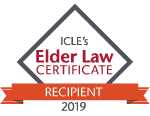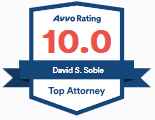Business Law
Overview
Videos
Case Studies
Business Law
Michigan attorneys who have both practical business experience as well as legal expertise are rare. David Soble is one of these exceptions. He is a business owner, former “big bank” insider, active real estate investor, and of course, lawyer. He brings over 30 years of real life business and real estate experience to the table for his business clients.
Operating a business is not easy. Business owners have to regularly deal with issues as mundane or as complicated as:choice of business entity; business tax consequences; organizational documents; operating agreements; partnership agreements; employment contracts; consulting contracts; non-compete agreements; compliance with bank and consumer protection laws; commercial negotiations; and an resolution of stockholder/partner/LLC disputes. This is not an exhaustive list. Whether you own a business or are opening a business, you owe it to yourself to speak with David Soble and his “proven resource” of business colleagues who can effectively address your concerns.
Different Types of Entities:
1. Sole Proprietorship or Sole Proprietor DBA: A sole proprietorship is a business structure with one owner. A majority of small businesses in the United States are sole proprietorships because it is the easiest to set up and maintain. If you do nothing to choose a legal structure you will default to a sole proprietorship because there is no paperwork to file apart from additional schedules on your personal income tax returns. However, if you plan to operate the business under a name that is not your personal name, then you must file for an assumed name “DBA” (doing business as) certificate with the county clerk of the county where your business is located.
There is no legal separation between the business and the owner in a sole proprietorship. This means that as a sole proprietor you will have unlimited responsibility for the liabilities and debts of the business. For instance, if the business cannot pay money owed to a vendor, that vendor may sue you individually. It also means that any income or losses of the business are accounted for on your personal tax return.
2. Partnerships: There are two types of partnerships: General and Limited. A general partnership is similar to a sole proprietorship except that it has two or more owners. Like a sole proprietorship, it is easy to set up and maintain. There is no paperwork to file unless you are operating the business under a name that is different from the personal names of the owners in which case you need to file a “DBA” (doing business as) certificate with the county where the business is located. It is also highly recommended that the partners create a partnership agreement that addresses roles, responsibilities, and contingencies, in order to avoid disagreement and conflict between the partners. In a general partnership the owners have unlimited liability for the debts of the business. This means that even though the partners share the profits equally, each partner is 100% responsible for any debts of the business.
A limited partnership has one or more general partners and one or more limited partners. The general partner(s) control and operate the business and are 100% liable for any debts of the business. The limited partner(s) do not participate in the operation of the business, and their personal liability is limited to their contribution to the partnership. Typically a limited partner is an investor.
In order to form a limited partnership in Michigan, you must file a certificate of limited partnership with the Michigan Department of Licensing and Regulatory Affairs (LARA). If a limited partnership does not follow statutory requirements it will be treated as a general partnership so you should consult with an attorney before creating a limited partnership.
3. Limited Liability Company (LLC): An LLC business entity was created to combine the advantages offered by both partnerships and corporations. An LLC provides the members (owners) of the business limited liability protection like shareholders in a corporation combined with the simpler operation and pass-through tax characteristics of a partnership. An LLC is created by filing Articles of Organization with Michigan Department of Licensing and Regulatory Affairs (LARA) along with the appropriate filing fee. Like a corporation, an LLC will be responsible for paying an annual fee with LARA to continue its existence.
In addition to the Articles of Organization, members of an LLC are encouraged to establish an Operating Agreement. Particularly in a multi-member LLC, this is the basis on which you establish consistency and understanding about how the company will be managed and decisions made, duties of members, what contributions are required from members, how profits and losses will be calculated, limitations of liability and protection of members, and how members might be added, terminated or exit. The State of Michigan does not require an Operating Agreement to be filed in order to form an LLC, but rather this is a private document which governs the relationship of the members and may be amended by the members from time to time.
By default, a single-member LLC is taxed as a sole proprietorship and a multi-member LLC is taxed as a partnership. But the member(s) may elect to have the LLC taxed as an S-Corporation or a C-Corporation. Tax election is separate from entity choice, and so members should consult a tax attorney or CPA with any questions and to maximize tax planning opportunities.
Do You Have A Business Law Concern?
Call Us For Your CONSULTATION
At 888.789.1715 or
Complete This Form.
Shady
How to Protect Your Legal & Financial Interests When Doing Business With Family or Friends

Videos
A Word About Small Business Legal Protections
Podcast
Our Latest Podcasts
Soble Podcast Episode: I am Magnavox
Soble Podcast Episode: It Takes a Comma
Soble Podcast Episode: Hired the Wrong Person
Soble Podcast Episode: Information is Not Experience
Soble Podcast Episode: Flight of the Concordski
Soble Podcast Episode: And That's the Way It Is, Mr. Cooper
Soble Podcast Episode: Why Hesitate?
Soble Podcast Episode: Fortunes and Misfortunes of a Village
Soble Podcast Episode: Not Always As They Seem
Soble Podcast Episode: Chariots and Rocket Boosters
Soble Podcast Episode: Cleveland '86
Soble Podcast Episode: The $100K Beard
Soble Podcast Episode: The Potter's Apprentice
Soble Podcast Episode: Replacing the Brakes
Soble Podcast Episode: The Worst Kind of Art
Soble Podcast Episode: There's All Types of Help
Soble Podcast Episode: The Chaos of My Sock Drawer
Soble Podcast Episode: The 6 1/2 Foot Scowl
Soble Podcast Episode: Turning Point in History
Soble Podcast Episode: Decisions Based on Fear
Soble Podcast Episode: Fasta Pasta
Soble Podcast Episode: Just Don't Go There
Soble Podcast Episode: Don't Celebrate Too Soon
Soble Podcast Episode: Meanwhile in the Town of Popperville
Soble Podcast Episode: America's Most Trusted Professionals
Soble Podcast Episode: Ancient Walls
Soble Podcast Episode: The 24-Hour Rule
Soble Podcast Episode: Takin' it Easy and Other Mistakes
Soble Podcast Episode: Sarah, Pumpkin Queen
Soble Podcast Episode: Don't Stop Pedaling
Soble Podcast Episode: Kmart Fish and the Blue Acara
Soble Podcast Episode: Carthage and Rome
Soble Podcast Episode: An Empty Vessel
Soble Podcast Episode: Expectations vs Reality
Soble Podcast Episode: Most Dangerous Day in Modern History
Soble Podcast Episode: It's in the Small Details
Weekly Q & As with David Soble
FAQs
Frequently Asked Questions
Top Business Law Questions
Business is already complicated without having to endure legal headaches. Contact our business attorneys today!
How many Investment properties can I put in one Limited liability company?
As many as you’d like to put under one corporate “shield.” There are other considerations you should take before doing so, such as the locations of the properties, or the property types. Consult with a real estate and business attorney before you proceed.
What is an operating agreement?
An operating agreement is a contract that sets forth the responsibilities between members of a limited liability company. Having an operating agreement is required if you are doing business and want the legal protections afforded by the state in which you are incorporated.
Do I really need a written agreement when opening a business with a family member?
Yes. Setting out your business goals and expectations with your business partner in writing is a good idea to protect against disputes and problems at a later date. Written agreements memorialize the oral representations made between parties. Nothing is more disappointing (or expensive) than when family members or friends fight over a business arrangement and there is nothing but a verbal agreement for the parties to rely upon.
What is better to form, a limited liability company or a c-corporation?
Which corporate formation one should select depends on the number of business owners, their legal needs, and their tax status. Consult with a business attorney beforehand.
Should I sign for a business loan as an individual?
If your business is taking out a business loan and you sign for the loan individually, you essentially become a ‘co-signor’ or ‘guarantor’ for your company’s loan obligation. Consult with a business attorney before you endorse any lending documents to avoid further and unnecessary legal and financial liability.
Why do I need a corporate resolution to close on an investment property that I own free and clear?
I want to make my daughter 50/50 owner in my investment property LLC. Is this a good idea?
More Articles About Business
Read our most recent articles on this topic
Why You Need an LLC and Operating Agreement in Real Estate
Single-Member LLCs and Operating Agreements A single-member limited liability company (\"SMLLC\") is a one-owner business. The SMLLC is like a sole proprietorship, but having an LLC has advantages over operating a business individually, without filing for a state corporate status. Most importantly, having a business corporation helps to protect your…
Loan Workouts: A Solution for Missed Small Business Loan Payments
Your business is having financial issues, cash flow is tight, and you have defaulted on your business loan. What happens next and how do you work out of this situation? Having a brief understanding of commercial loan workouts is important for business borrowers to be able to negotiate with their…
Why Do You Need a Business Document Retention Policy?
Technology was supposed to be the answer to the mountains of paper that go along with managing a business. But the digital files can form mountains just as high, or worse--get lost in the bottomless crevasses of your hard drive. Whether it is paper piles or microchip messes, the problem…
Why Clients Choose Us
Once You Call, You'll Appreciate the Difference.
Former Big Bank "Insider"
HigHest Peer and Client Ratings
24 Hour Response

30 +Years of Legal & Business Experience
Affordable & Approachable
Innovative & Creative solutions
Soble Law, led by attorney David Soble, is a boutique law firm based in Michigan, focused on real estate law, probate, and contract litigation. With over 35 years of legal and big corporate banking experience, David Soble and his legal team offer a niche alternative to large national firms to informed clients who value senior-corporate-level counsel, financial and realty-industry insight, and education-forward service. They provide practical legal solutions that protect clients' property and financial interests. Known for their no-nonsense approach, the firm represents individuals, families, and businesses across Michigan and Ohio, offering clear guidance through complex legal matters.
We Reduce Legal Exposure & Financial Risk. Every Day.
Real Estate Law
Real estate and finance law are their own legal specialties. So how do you determine which attorney you should work with...
Contract Law
Contracts regulate expectations between parties. Working without a contract is comparable to walking a high wire without a net.
Business Law
Attorneys having years of both practical business experience as well as legal expertise are rare. David Soble is one of these...
Financial Disputes
David Soble has decades of experience as a 'big bank insider." He and his business management team are uniquely situated when it comes to handling our clients stressful financial...
Litigation
We regularly and successfully litigate real estate and contract issues. While we prefer to first resolve our client's issues reasonably and amicably, we can and certainly will escalate....
Probate & Estate Planning
For most people, their home, or other real estate, is the most valuable asset that they own. We're dedicated to protecting our clients' assets and ensure that their legal interests...
We're one of the best reviewed law firms in the state.
Don't take our word for it! See hundreds of our reviews on Google, AVVO, Martindale-Hubbell and Linked In.
Your Legal Next Steps



















